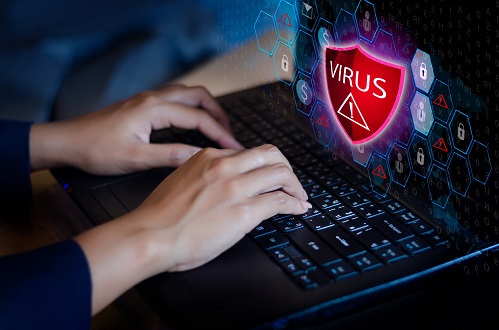A computer virus is a specific type of code that has the ability to replicate and spread to other computer systems. Once a system has been infected by a virus, a variety of difficulties may arise, such as data corruption, decreased performance, and system crashes. In certain circumstances, viruses may be used to steal sensitive data or spread harmful software.

There are several types of computer viruses, but they all have the same objective: to cause system harm. Installing antivirus software and sticking to safe computing habits is the most effective method for protecting your computer from malicious software. By keeping your computer’s security current, you can prevent malware from causing destruction to it.
Computer viruses are malicious programs that may infect and severely damage a system. In other instances, viruses might delete data or even disable the whole machine. You may, fortunately, take a range of safeguards to protect yourself from these perils. Installing and maintaining an antivirus program is required. Antivirus software will scan your computer for potential viruses and remove any that are discovered.
Additionally, use caution while browsing websites and opening email attachments. Avoid clicking on links inside spam emails, and only download files from trustworthy sources. Ensure that your operating system and other apps are current. By following these simple instructions, you can safeguard your computer against viruses and other types of malware.
Email attachments are one of the most prevalent ways that computer infections propagate. When a recipient gets an email attachment from an unknown source, there is a possibility that the attachment contains a virus. Downloads from the internet are an additional prevalent method of viral transmission. If someone downloads a file from an unreliable source, they may unwittingly infect their computer with a virus. Infected USB devices provide an additional vector for virus transmission. If a user transfers data from an infected USB drive to their computer, they may inadvertently infect their system with a virus.
Viruses may potentially propagate via social media platforms. If a user clicks on a bad link on a social networking site, a virus may be downloaded into their machine. All of these are popular methods for the transmission of computer viruses. By understanding these dangers, individuals may take precautions to prevent infection.
If your computer gets infected with a virus, it is crucial to wipe it immediately. Otherwise, the pathogen might spread and cause significant harm. Disconnect your PC from the internet as the first step. This will prevent the infection from further spreading. Next, you must do a virus scan. There are several free virus scanning tools accessible online. After identifying the infection, you may eradicate it using your antivirus software. You should then restart your computer in safe mode and do a final check to confirm that the malware has been entirely eradicated. If you cannot clean your computer on your own, you may always take it to an Orem PC repair shop for assistance.
When your computer is infected with a virus, it might seem like the end of the world. Your system may slow down, crash often, and become useless in general. In certain instances, you may need to take your computer to a repair shop. Viruses may inflict long-term harm to your system, even after they have been eliminated. For instance, a virus may ruin crucial files, making their opening difficult or impossible. In severe circumstances, a virus might erase essential system files, leaving your computer inoperable. Therefore, it is essential to secure your system against viruses and other forms of malware. Installing antivirus software and creating backups of your data may lessen the likelihood that a virus will cause long-term harm.
To read more on topics like this, check out the Business category

Leave a Reply